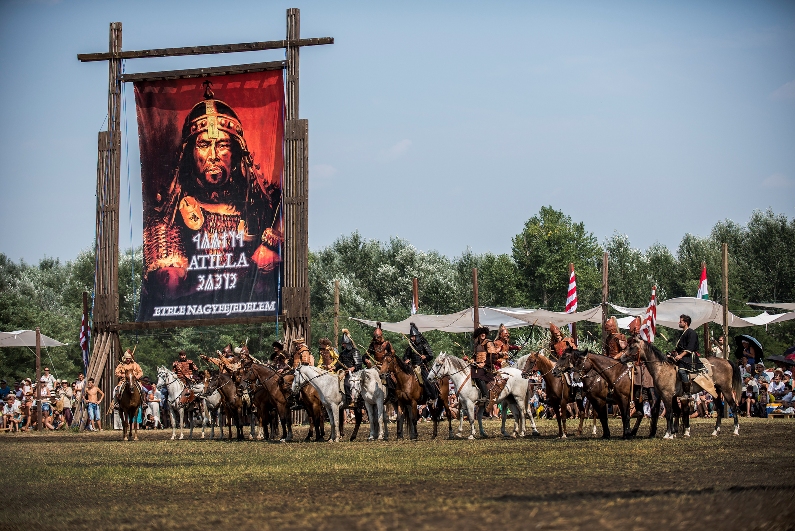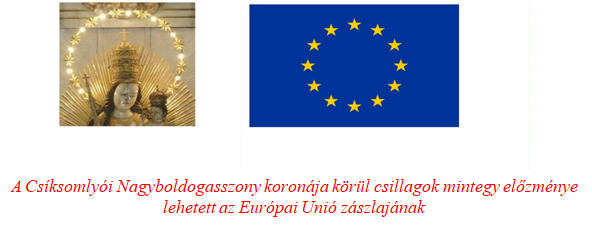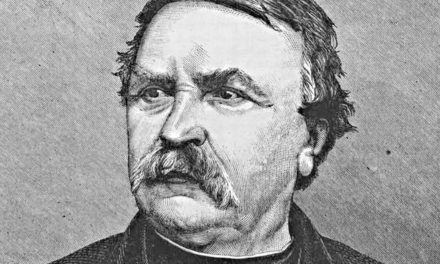"A nation that does not know its past does not understand its present, and cannot create its future!"
Europe needs Hungary... which has never let itself be defeated.
The question mark at the end of the quote in the title is not a mistake. The famous Roman orator Cicero, who died in 43 BC at the age of 63, said "Historia est magistra vitae" /History is the teacher of life/ spanning more than two thousand years, it should still be valid today. Cicero's surviving saying originally reads as follows: History, the witness of the times, the light of truth, the living memory, the "teacher of life, the messenger of old times, through what other voice becomes immortal, if not that of its speaker?" (Translation by Anikó Polgár and László Csehy.)
Why the question mark? Following the last 1100 years of Hungarian history, perhaps Cicero's wisdom is valid. However, recent years have thrown humanity into an era in which the flood of information "overwrites" history. Let's stay with the Hungarians of the Carpathian Basin! Universal history is called upon for help only in the case when it directly influenced or affected the development of the fate of our people.
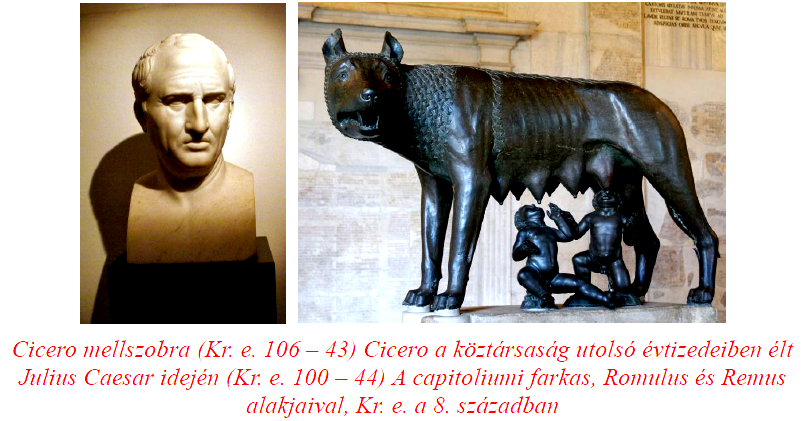
Hungarians are very good at three things - at least that's what we think of ourselves - you could say they're experts in them. Soccer, politics and gastronomy (including traditional dishes, wine and brandy).
I will not dissect the "science" of soccer and cooking. However, history is close to politics, so I dare to take a stand on this. I start from the fact that the majority of people - whether they want to or not - know about the daily events. News is pouring in from every channel. Which radio, television, media interface, performance, personal experience affects the individual depends primarily on his or her previously formed worldview. And he believes it, whether it's right-wing or left-wing news, for the sake of simplicity. He believes - and this is unfortunately true for the majority of people - because he does not know the laws of history, the history of his own people, the roots. The mass of oscillators is an even more complicated case. They do not have a mature world view, they only have material, self-assertion and power interests. It is no coincidence that their role is so highly valued before the elections. Of course, that must also be accepted - that's how it's always been - although the down-to-earth truth cannot be forgotten: Money talks, dogs bark!
The average person is not interested in ideologies! When a significant part of a society is satisfied with the given system, there is mainly one reason. Can you create an acceptable standard of living for yourself and your family without breaking into work? How is this so natural? How should this be accepted? I'm not sure! We have already seen rich, powerful countries and people from earlier times - you need to know history for that - who became victims of money, comfort, and selfishness. Unfortunately, even today we live in the middle of such a process, black and white, and some people do not see or do not want to see the danger. What is the main danger?
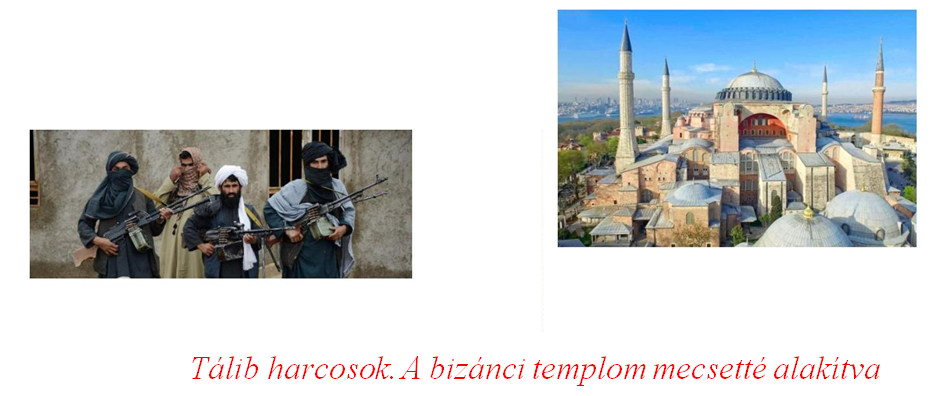
Islamization, compared to which the Russian-Ukrainian war and other economic and ideological horrors are only diversionary operations. Islam is now the dominant ideology and governing force in 57 countries of the world. This ongoing third invasion will be the most successful chapter of the 1400-year-long conquest process, as the western part of Europe surrenders itself. All Europeans should know this bit of history, that when the soldiers of Allah occupied Byzantium in 1453, the Eastern Roman Empire, also known as the Byzantine Empire, came to an end. The empire in which the future of Europe was founded. You should also know that three years later, in 1456, the Ottoman army began to besiege Nándorfehérvár. János Hunyadi even beat them back, saving Europe, including Hungary, for at least 70 years. And the Christians who support the "poor persecuted" should absolutely hear that the imams are openly preparing the incoming fighters for the occupation of Rome (meaning the West). And those who want to learn about our future from the perspective of fiction should read Ferenc Herczeg's Byzantium and/or Stefan Zweig's book Star Wars.
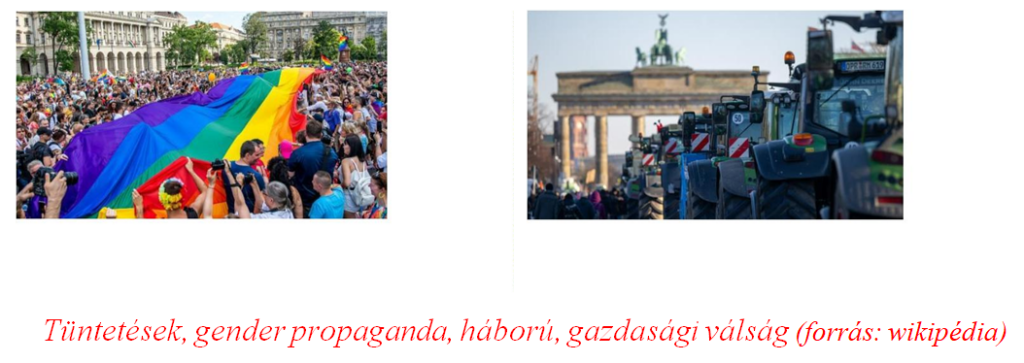
The division of society
The contradictions that increasingly divide societies exist not only in Hungary, but all over the world. You just have to watch and listen to a daily flood of news. We see street riots, poverty, the horrors of wars, the almost unbridled spread of drugs and corruption. Furthermore, we experience in disbelief the denial of man's natural biological existence, the violent invasion of gender theories.
In this diverse world, people believe in something and try to set it as a guiding standard. The young child sees the compass in the fairy tale, in his parents, in the magic of a subject in elementary school, or in the teacher who teaches it. How does this belong here, history is the teacher of life?
I myself consider history – believing Cicero's saying to be true – to be the compass that should guide the thinking of the Hungarian people to a riverbed. I will try to outline the line of our one thousand and one hundred years of history, or, if you like, the events of the bumpy road of our becoming a nation, which can be described from the conquest led by Árpád to the 21st century. In Hungary, and we do not appreciate this enough, there are still two history lessons a week in both primary and secondary schools. In most of the so-called developed countries, the subject of history has long since fallen into disrepair. We see the consequences!
Unfortunately, even our historians, armed with thorough knowledge, "preach the word" by gathering in several camps of experts. I also mention examples that I have arbitrarily chosen from among the distinguished representatives of the discipline. However, the examples are ones whose representatives also strive for political messages.
Historians on the left
One of our well-known historians is an excellent connoisseur and teacher of, among other things, the era of the Principality of Transylvania, and the 16th-17th centuries. events in Hungary in the 20th century. He has been active in politics since the regime change, and was even Minister of Education. It is to his credit that he still stands by his now disbanded party and did not follow many of his fellow party members into some other political grouping. This is how the historian-politician assessed the Hungarian government's position regarding the European events taking place in December 2023 and the Russian-Ukrainian war. What kind of prime minister is he who does not make friends with our allies, but seeks the friendship of those who are not our allies, and even dangerous for Europe. It is up to the reader to decide who sits upside down on the horse.
Another Széchenyi Prize-winning historian, whose books (as well as those of his students) are piled up in bookstores, who together with his students dominates Hungarian universities, felt he had to speak out. He is the scientist who publishes the most today and enjoys state subsidies, who appears in films and on TV screens, who is the role model and doyen of the generation of historians who preach the "neutrally leftist word". He gave the following assessment to a newspaper that is also "neutral" and only proclaims the truth. "It will be after our fathers Horthy and Kádár, and maybe even we already have father Orbán." He goes on to explain that although people with different views are not going to jail now, there is no agenda to abolish parties, offices, newspapers overnight, and there is freedom of speech (one of the largest in Europe, I might add), no police brutality at demonstrations, no migration crisis , but it's still a big problem.
What's the big deal? According to the author, under the Horthys, the right-wing system remained in power for more than two decades by restricting the right to vote and introducing open voting. Today, this government has been able to stay in power since 2010 due to the redistribution of electoral districts and the introduction of single-round elections, as well as discrediting campaigns against the opposition parties and their leaders. The historian could have started with our father Árpád, and he could have reached our father Kossuth, if he had so much power. The juxtaposed facts of the politicizing scientist cover a slice of reality, but the already trite tolerance and anti-democratic epithets are not for the pen of a serious historian. (I would be interested to know what you would come to in connection with the analysis of the events that occurred in Poland during the 2023-2024 round.)
Among the countless historians, there is also a public figure who insists on a very "stubborn" position. The figure is known not so much for his scientific work, but rather for his regular appearances on various television channels and his outbursts on those forums. What kind of historian is someone who has only one thing to say, and that is bland phobia? Then let's not forget his famous wish, when he once dreamed that he would like blood to flow on the streets of Budapest. There was already such a thing, in 2006, but the "scholarly historian" must have slept through it.
The threat of civil war has already been made by several people. Whether it is a historian, a politician or a journalist, this is the bottom of the social "debate". Haven't we suffered enough in the 20th century? This brings to mind the name of another researcher from the palette of historians, whose father had already dissected this topic, namely the tragedy of the Jews in Hungary. We can list dozens of books from the famous author's pen, which are the 20-21. century Hungarian leaders - especially Horthy and Sztójay - also proves the guilt of a large part of the population. Then, in 2023, the political biography of Ferenc Szálasi, based on the 2016 story and the studies of the already mentioned historian's father, was published, which exonerates the much-talked-about "Jewish-killing" politician of his crimes. Many people have raised their heads and are puzzled by the phenomenon, but it is better if they read the book of more than five hundred pages.
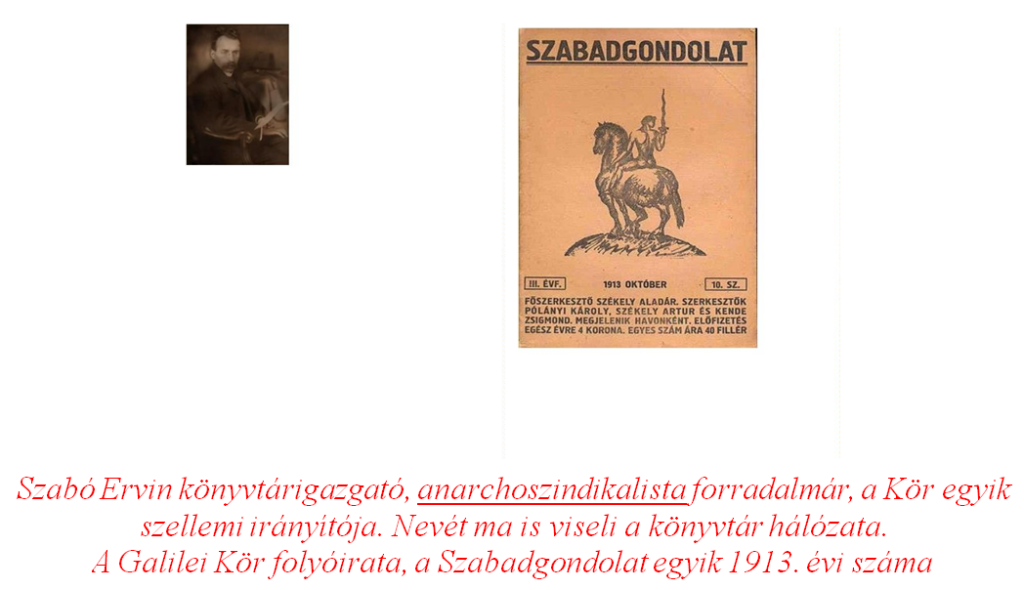
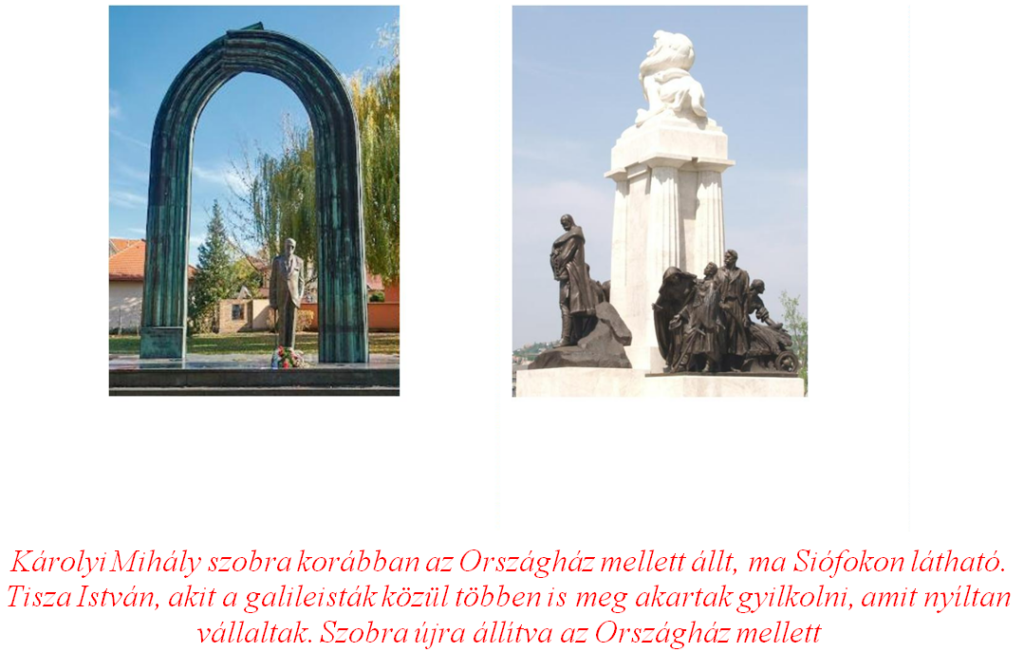
We should also mention one of the historians of the younger generation, who is also very talented in how to sell himself and his worldview in the "culture war market". The person is a fan of Endre Ady, which already established his sympathy for Galilei Kör (1908-1919), who set an example for today's youth. (Galileists were without exception Ady's fans at the time.) Of course, the historian in question is also a university lecturer who, although supported by data, publishes a series of provocative works. He holds Mihály Károlyi and Oszkár Jászi in high esteem, with all their faults, on the other hand, the person of István Tisza is the cause and role model of the war, the loss of the country, and insane politicking. His treatise entitled "Eszelősek és idiotát stálál Hungary" is about the history of the beginning of the 20th century, which he projects without any subtlety onto the current state leaders.
Historians on the right
The palette of artists in this field is also very diverse, and among certain performers it is almost impossible to follow. Before turning to a brief analysis of historians who stand up for national values, the most important workshops must be mentioned.
The work of the Hungarian Research Institute, founded on January 1, 2019, and its mere existence have caused a lot of controversy over the past five years. The explanation of the reason for the contradictions is simple. The work of the Institute focuses on topics such as hitherto undiscovered events of Hungarian prehistory that need to be proven, as well as research into the centuries of the Árpád House and the Hunyadis. With special regard to the identification of the remains of the kings and their family members who shaped our history with the tools of DNA and archegenetics (archaeology, historical research, anthropology), which was not possible before. Another "sin" of the Institute is that it conveys the thousand-year-old idea of the Holy Crown idea and the message of the Regnum Marianum to Hungarians living today.
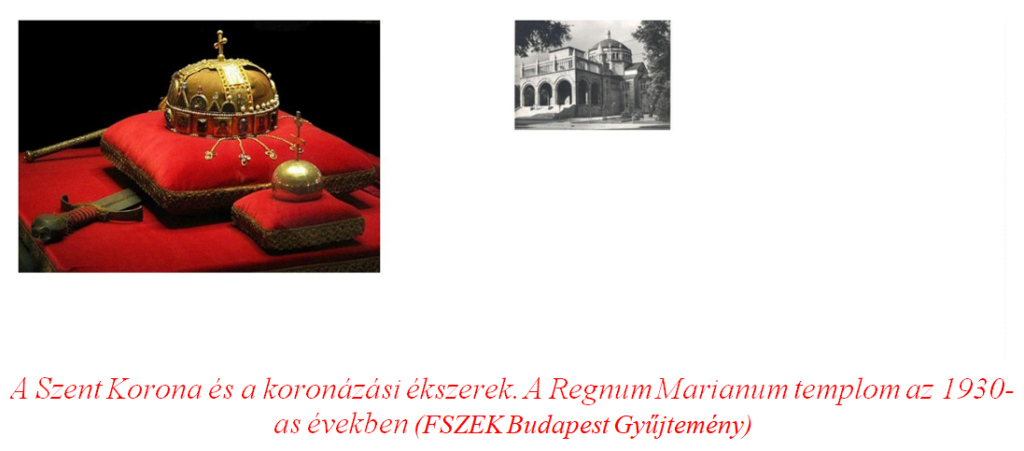
What does this mean? It is much easier to make people with insufficient knowledge and faith believe that this thousand-year-old idea of maintaining the state does not exist. It's easier to make fun of it than to take it seriously. Furthermore, let's not forget the importance of the Golden Bull issued in 1222, which in Europe was preceded only by the English Declaration of Rights (1213). Perhaps fewer people know that the Bill of Rights only became a form of power, a "constitution" in England when it was published in 1689, which separated the roles of the king, the legislature and the executive. The Holy Crown and the Regnum Marianum are permanent and eternal! Although the legal system and borders of the Hungarian state have changed several times over the centuries as a result of external and internal forces, the symbolizing idea of the state has remained unchanged since Prince Árpád and King Saint István. The one who recognized and accepted this among the leaders of the state was the elected leader of Hungary, and the one who did not could only remain at the head of the country for a while by force.
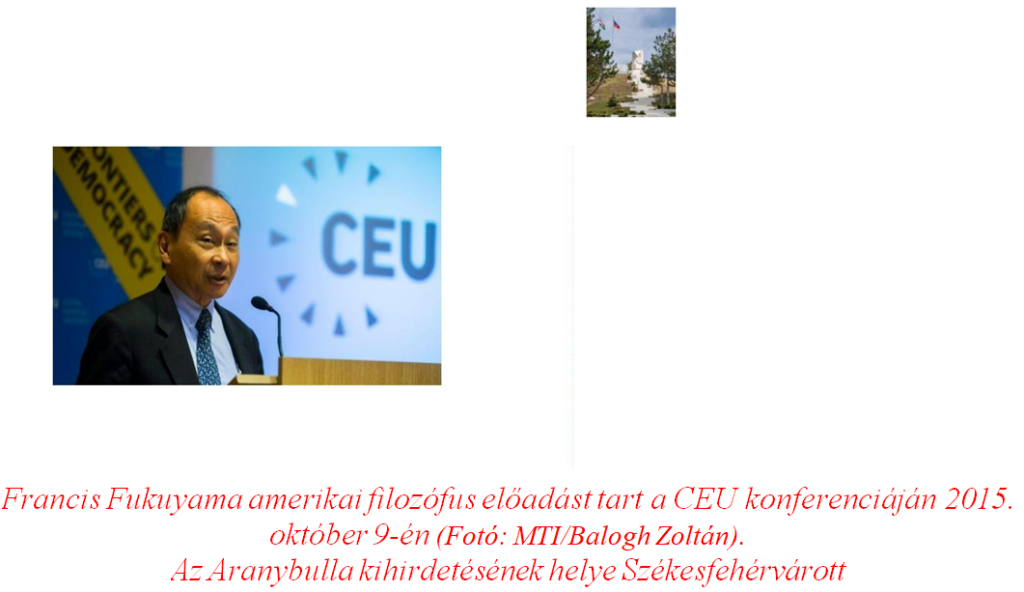
The 71-year-old Francis Fukuyama, a Japanese-American historian and philosopher famous for his mistakes, is still making the rounds today with his widely forgotten work The End of History. I am only quoting the author here, because in recent years he has been working on Hungary with remarkable diligence, which no one asked him to do. Unless it is Action for Democracy (A4D), of which he is an active advisor and, what's more, a member of the American-based organization. This would still not be enough for me to mention Fukuyama here, if he had not involved himself in a chapter of Hungarian history that he has absolutely nothing to do with and knows nothing about. In particular, he writes about the Golden Bull, created in 1222, that the ruling elite of the 13th century imposed this harmful bull on the king and the Hungarian people, which then led directly to Mohács. The essence of his idea was, of course, to project the eight-century-old constitution, which is one of the pillars of our nation, onto today's Hungarian "dictatorship". It would be more fortunate if, for example, it dealt with the African Sahel region and/or the seething Asian and Latin American states. /Hungarian Nation/. In these states, there is significantly more "to research", and perhaps you could see that there is no end to history. By the way, history does not end anywhere on this planet, in fact, it has recently reached a new level. It will be difficult for Mr. Fukuyama to paint an authentic picture of the world from here.
The VERITAS Historical Research Institute and Archives. Similarly to what was described in the case of MKI, the Veritas institute is also a political target, and a significant part of the media constantly attacks it. Sometimes they even give a reason for this. On the one hand, their historical works and conferences, and on the other hand, their personal composition provides the overall fire pouring down on them. The Institute was established in 2013 by the Hungarian government. With the aim of strengthening national consciousness by basing it on extensive research work.
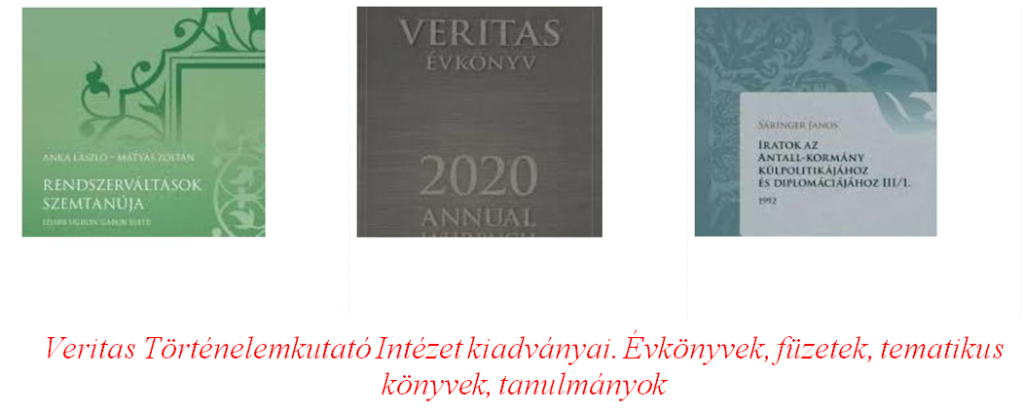
The bulk of the research work covers the events of the nearly 130 years between 1867-1994, the multiple regime changes (compromise - era of dualism - end of the First World War - republic - Soviet Republic - Trianon - Horthy era - end of the Second World War - Rákosi era - 1956 - Kádár era – 1990) is concentrated. Each era is examined by separate research groups, whose results are presented at 2-3 conferences and publications per year.
The world view of the right-wing historians - let's call it that for the sake of simplicity - can be defined in the summaries above. They do not deny our national past, Christianity, and take advantage of the unique opportunities inherent in the retaining power of the Hungarian language. Of course, left-wing historians also work with the latter.
One of the most mentioned and attacked historians is the one who does not rule out the restoration of the unity of Historical Hungary, which he primarily supports with a critique of Romanian historiography. His work is particularly marked by two topics. One is the dissection of the unjust Trianon peace decree, the other is the activities of the Freemasons in Hungary. Sensitive topics, inexhaustible, but at the same time a source of sharp contrasts.
Special mention should be made of the research into prehistoric history that took off in 1990. There were precedents for this, but during the decades of the socialist system it was impossible to write or talk about them. What caused an even bigger problem, which meant the loss of the healthy consciousness formation of an entire generation, can be traced back to the shortcomings of Hungarian history teaching.
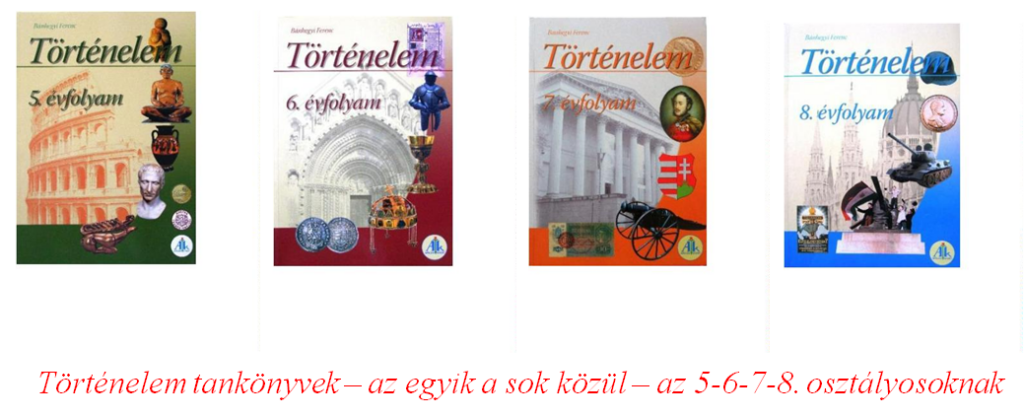
I note that after the change in system or method, the one-textbook history teaching was replaced by the textbooks of the mushrooming textbook publishers. Nearly a hundred publishers were founded, of which history textbooks from about 6-8 publishers could be included in schools. You could choose between them, but none of them could avoid the one-way curriculum. And this limited the contents of textbooks to strict limits. (For example, Kornél Bakay also published a 5-8th grade series, but he had no hope of getting on the list because it did not meet the official curriculum requirements.) There could be a government following any political direction, education according to the "guidelines" of the leftist forces happened. A minister named Bálint Magyar took twenty years away from the opportunity to teach the national trend when he liberalized the school system. The directors of education paid particular attention to the content of the subjects of history and literature. It is not difficult to guess why special attention was paid to these two subjects.
The false Finno-Ugric theory had to be included in the high school and middle school history textbooks that were put into circulation from 1996, but at the same time, for example, Gyula László's double conquest theory could only be described with restrictions. It was not advisable to teach the name and historical role of Attila the Great King of Huns. All of this can be easily checked if anyone turns the pages of the relevant curricula made in the 1990s and 2000s.
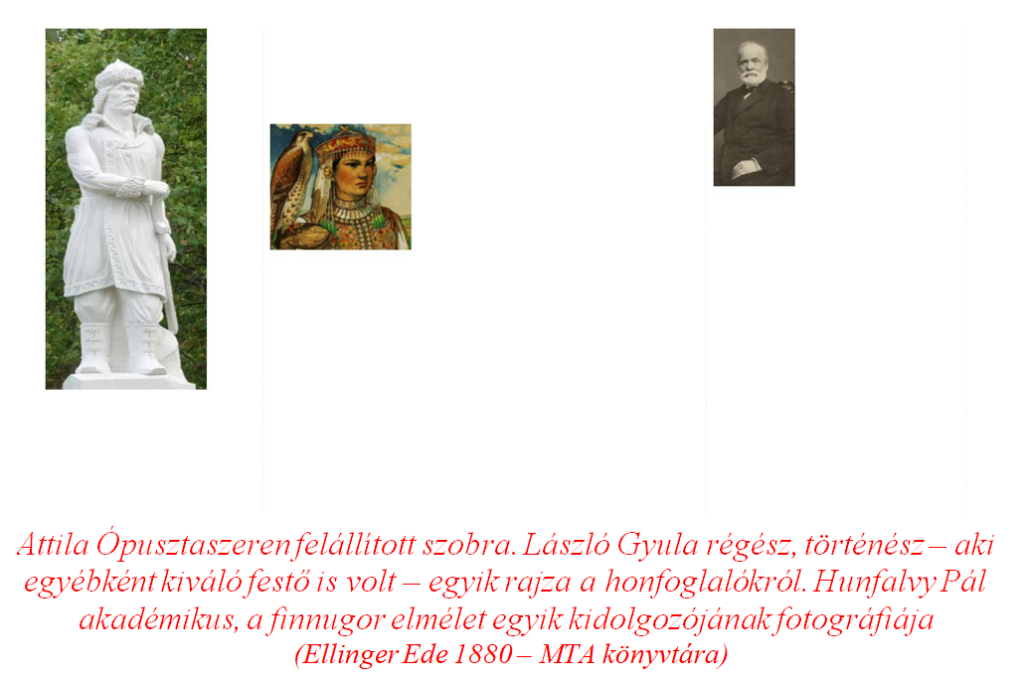
Returning to prehistoric research. Observing the persons who wrote the books and studies, but especially the dozens of lecturers, an interesting picture emerges. And here I am only talking about right-wing authors with national sentiments, if I want to put it more simply. These historians, intellectuals who deal with history but practice other professions, and history teachers want the same thing. To bring justice to Hungarians, to put Hungarian prehistory and our 1,100-year-old history in their place. The problem arises from the fact that there are as many "truths" as there are speakers. Sometimes I don't know where some people get their "facts", even though I try to find out. It is an even bigger problem that these authors are at war with each other, they see the solution differently in each topic. (I often think, and I am not alone in this, that provocateurs have infiltrated the ranks of the mentioned lecturers.) The result of this variety of theories will be, and has already been, to confuse the sincerely interested, history lovers who want to find out.
However, it must be stated that the researchers and archaeologists who have spent years or are currently spending years in Mongolia or other Asian countries have obtained such evidence that it is difficult to argue with them.
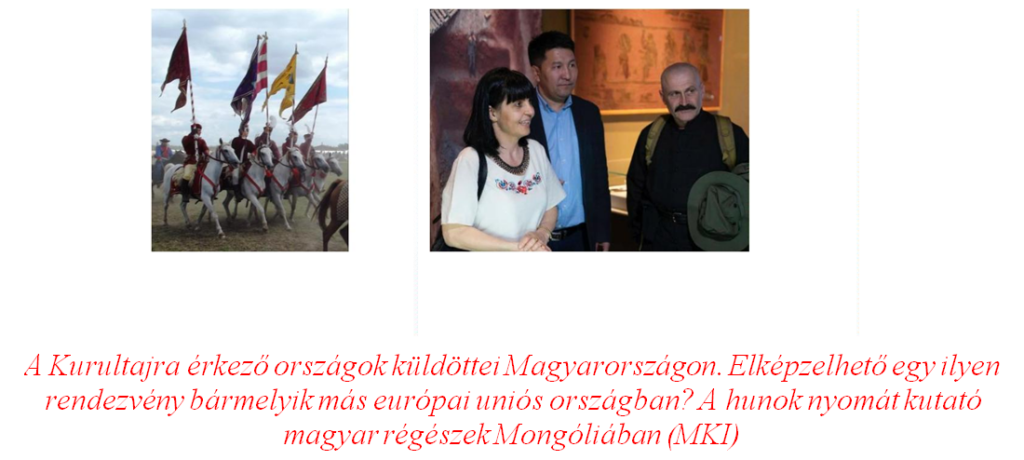
How can this perplexing contradiction be resolved? Perhaps in such a way that it is necessary to consistently, step by step, follow the centuries of Hungarian history that are built on each other. It is necessary to look at whether social events and their protagonists passed on the Hungarian "line" to the future, or whether they wanted to break it or even deny it. We can also call this line the soul of the people, because let's start from the fact that it exists. In the case of Hungarians, we can be sure of this. I believe that the majority of Hungarians are old enough to see who wants good and who wants bad for the country. In Europe, considering the 16-20 century history, we suffered the most, and we sacrificed the most to protect Europe. Then they thanked us well, we got Trianon for it. Can we imagine that the powers of a hundred years ago would have suffered such a loss as Hungary is suffering to this day?
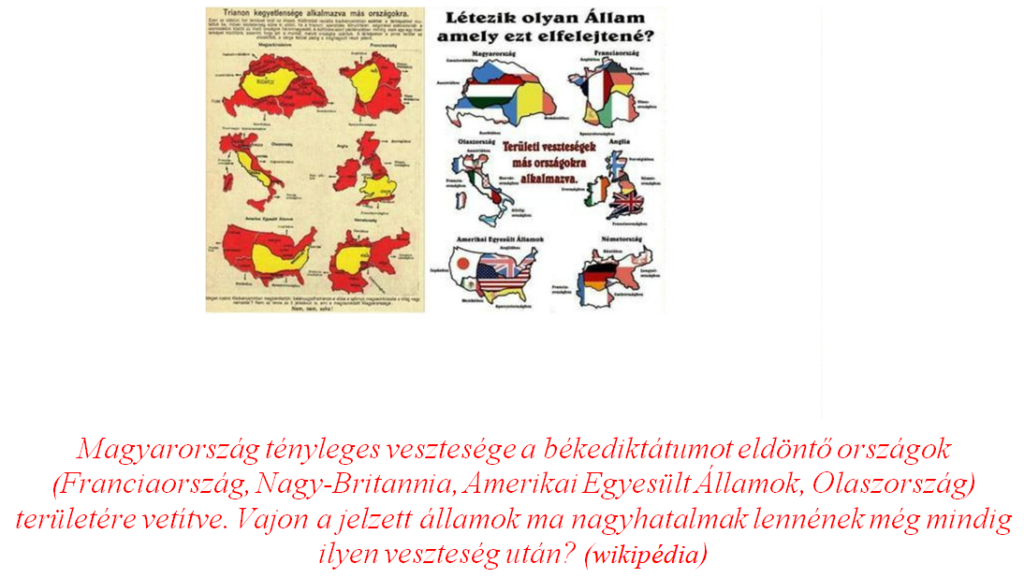
At the end of lectures, articles, and conversations, the already trite exhortation is often said: Let's wake up! Alarm clock! Those who voice this forget that we have been hearing this for almost 35 years. This time would have been enough for us to "wake up". Or don't those calling the wake-up call know that many, many people have woken up? After all, this is precisely why we are alone again, because the national consciousness in this nation, in this country, is stronger than in any other nation. And now I am only talking about Europe, including the 27 member states of the Union. Although it is possible that I am wrong, in any case, the daily political life of the 2020s points to this. The alarmists live in the naive belief that ten million people will wake up one fine day, and they will all want the same thing, think the same about Árpád, the Holy Crown, King István and Miklós Horthy, about Christianity, as he does. By the way, this has never happened even in Hungary, and it never will. Anyone who believes this is either a barrel talker or fatally naive.
Guardians, nurses and resurrectors of traditions
One more important fact should be mentioned among the many not discussed here. Businesses, small and large communities are multiplying like mushrooms, of which it is not certain that everyone is the bearer of national values, but in terms of trends, we still have to classify them there. I am thinking of the winemakers, the folk dancers, the masters of folk music and folk songs, and the popular children's groups, or even the riding stables, which function as a sign of the "Hungarian equestrian people".
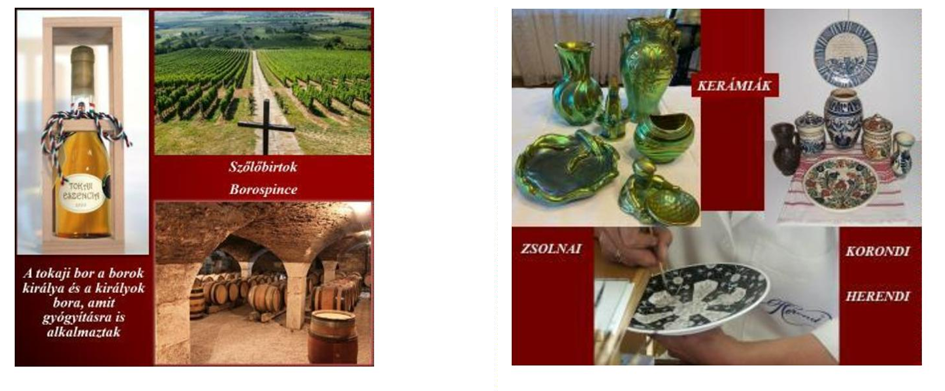
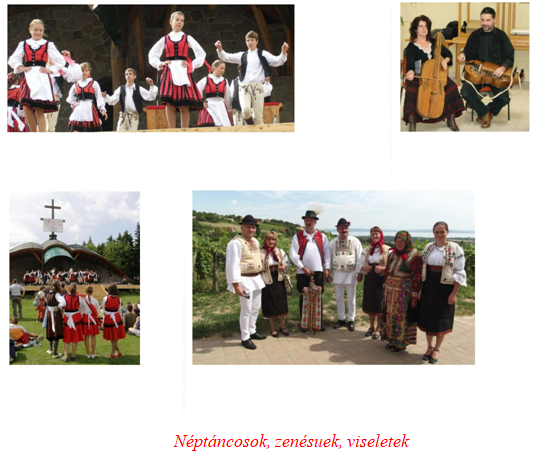
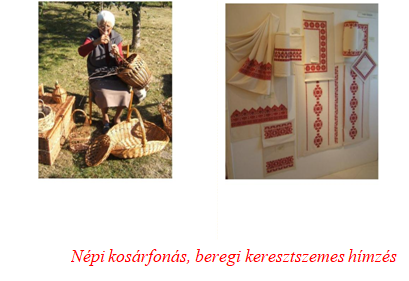
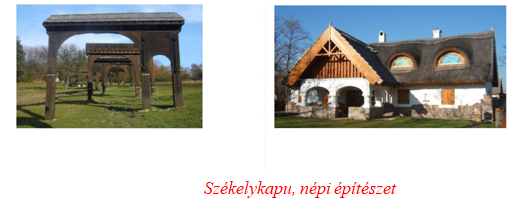
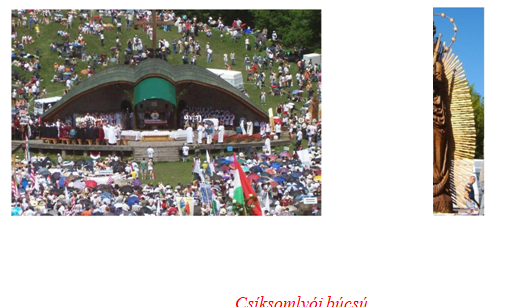
There is not enough space here to list the 90 or so values of the Hungarian Collection, but these are all values that are deservedly world-famous, or are at the level where they compete with any other value. Because other countries also have many miracles, but let us now only deal with our own values. From the drum cake to Herend and Solnay porcelain, Csíksomlyó farewell, Bereg embroidery, Kalotaszeg costumes to Hungarian folk tales, cemetery head trees, Székely gates and saber fencing, not to mention the Rubik's cube and Öcsi Puskás, the Hungarian treasury is endlessly rich. And it is up to everyone to decide for themselves what kind of world view this Hungarian miracle is due to.

The secret of our survival
In this world full of chaos, we encourage ourselves many times that Hungary must remain an independent state. After all, during the 1100 years, great empires emerged in Europe, much bigger, more populous and richer than Hungary, and then they disappeared. And we stayed. It's true that our territory and population have dwindled, but here we are. Where is the German-Roman Empire, the Habsburg Empire, the Ottoman Empire, the British Empire, the Third Reich, or the Soviet Union? Now mentioning only those empires that have invaded our country indirectly or directly for centuries, endangering our existence and independence. However, the explanation cannot be solved with this, the secret of the Hungarian people has deeper roots than this. Let's examine the 1,100 years of our country in the following sections, divided into centuries.
Let's not forget the fact that, fortunately, by now it has taken root in the consciousness of Hungarians, another great secret of our survival is our language, which has unparalleled richness in Europe. Let us think in particular about our runic writing, which has already brought new discoveries and surprises, and will continue to enrich our culture in the future.
Author: Ferenc Bánhegyi
Cover image source: Kurultáj
The parts of the series published so far can be read here: 1., 2., 3., 4., 5., 6., 7., 8., 9., 10., 11., 12., 13., 14., 15., 16., 17., 18., 19., 20., 21., 22., 23., 24,, 25., 26., 27., 28., 29/1.,29/2., 30., 31., 32., 33., 34., 35., 36., 37., 38., 39., 40., 41., 42., 43., 44., 45., 46., 47., 48., 49., 50., 51., 52., 53., 54., 55., 56., 57., 58., 59., 60., 61.

